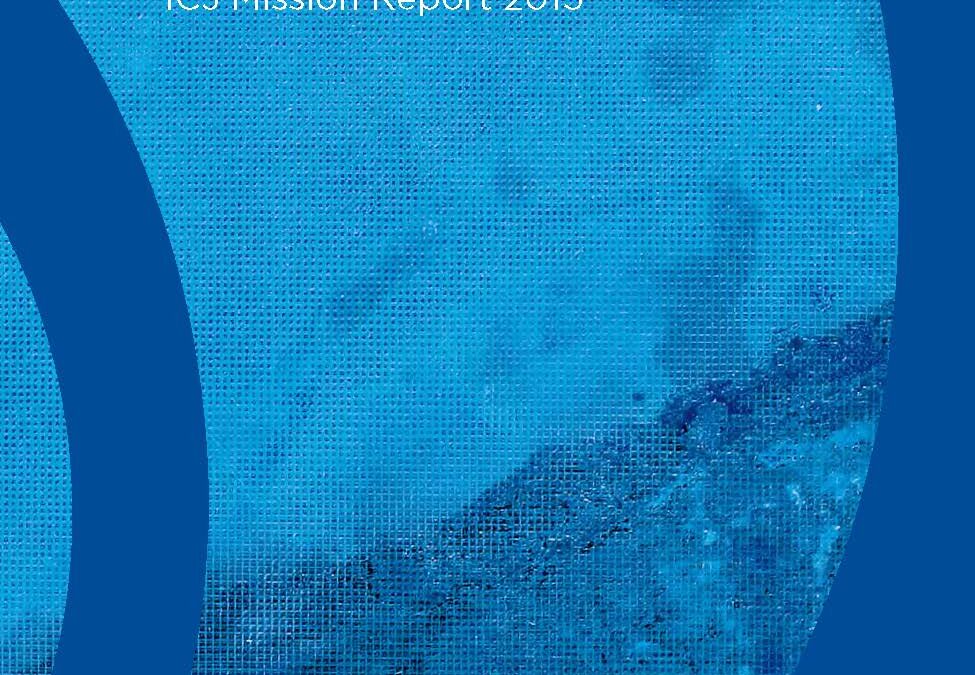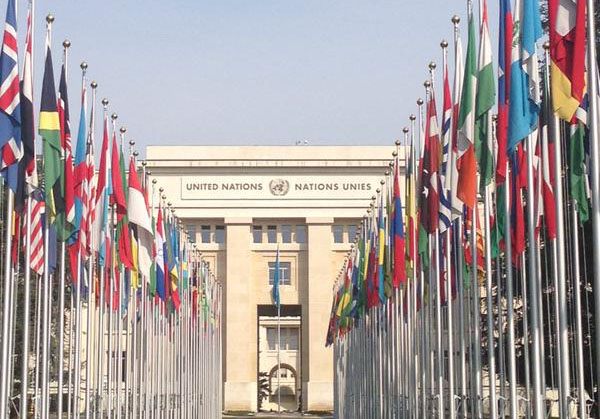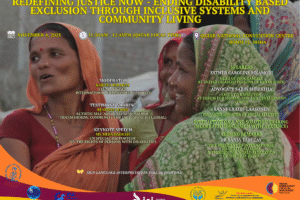
Oct 29, 2015 | Comunicados de prensa, Informes, Noticias, Publicaciones
Hoy, la CIJ hizo público su informe Venezuela: El ocaso del Estado de Derecho.
Este informe es el resultado del seguimiento que la CIJ viene haciendo desde hace varios años sobre la situación del Poder judicial y de los derechos humanos en Venezuela, así como de la Misión in situ liderada por Alejandro Salinas, realizada en agosto de 2015.
Desde su anterior Informe, Fortaleciendo el Estado de Derecho en Venezuela (2014), la CIJ ha constatado una vertiginosa degradación de la situación de los Derechos Humanos, un grave y sistemático menoscabo de la independencia e imparcialidad del Poder Judicial, y la total erosión del Estado de Derecho en Venezuela.
“Hay un claro divorcio entre el deber ser establecido en la Constitución y los compromisos internacionales y por otro lado lo que se refleja en la realidad,” dijo Alejandro Salinas, el autor del informe.
“Esta situación ya observada en años anteriores, se ve agravada por una serie de medidas del Gobierno venezolano que han significado ceder soberanía en favor de organizaciones criminales,” añadió.
En las últimas semanas, la CIJ ha constatado una acelerada escalada de los ataques contra los defensores de derechos humanos y toda forma de oposición social y política.
“La situación en Venezuela es, sin lugar a duda, configura una grave y persistente crisis de los derechos humanos, la democracia y del Estado de Derecho. La Comunidad internacional está en mora y debe reaccionar bajo del derecho internacional,” dijo Wilder Tayler, Secretario General de la CIJ.
La CIJ ha visto agravada la situación de la falta de independencia de la justicia en general, en virtud no sólo de la falta de independencia del Poder Judicial dada la inexistencia de estabilidad de la gran mayoría de los jueces y de la casi totalidad de los fiscales del Ministerio Público; así como también, la falta de garantías para el ejercicio de los defensores de derechos humanos y en algunos casos de la profesión de abogado.
En este sentido, la CIJ manifiesta su preocupación frente las consecuencias representadas en los altísimos niveles de impunidad judicial en los casos de violaciones de derechos humanos y de las víctimas de delitos comunes en general, lo cual contrasta con la inusual prontitud con la que se abren juicios, se dictan medidas cautelares restrictivas y se condenan a miembros activos de la sociedad civil, líderes sociales y a opositores políticos.
Entre los casos que más representativos de esta situación se encuentran, entre otros, la reapertura del juicio penal contra la jueza María Lourdes Afiuni; la detención preventiva para someter a juicio al abogado Tadeo Arrieche; la orden de captura contra los miembros directivos y de los consejos editoriales de “El Nacional”, “Tal Cual” y “La Patilla”; y la condena de Leopoldo López a casi 14 años de prisión.
Finalmente, la CIJ desea llamar la atención sobre la gravedad que significa que desde el mes de agosto del presente año 2015, 23 municipios en Venezuela hayan estado siendo sometidos a estados de excepción con la restricción de varios de los derechos consagrados en el Pacto Internacional de Derechos Civiles y Políticos, sin que estén claramente cumplidos los requisitos internacionales como la gravedad de la situación que no pueda ser enfrentada con los poderes ordinarios del estado, la estricta necesidad y proporcionalidad de las medidas.
Es de gran preocupación para la CIJ las medidas arbitrarias tomadas contra nacionales colombianos que han sido deportados masivamente, incluidos menores de edad; y además, que estando por darse inicio a la campaña política para las elecciones de diputados a la Asamblea Nacional el próximo 6 de diciembre, se hayan restringido – sin justificación – los derechos de reunión pública y de manifestación pacífica, por el efecto restrictivo que ello implica para el ejercicio libre de los derechos políticos en una sociedad democrática.
Contact:
Wilder Tayler, Secretario General de la CIJ, t: +41 22 979 3825 ; e: wilder.tayler(a)icj.org
Alejandro Salinas, autor del informe, e: alejandro.salinasrivera(a)gmail.com
Venezuela-OcasoEstadoDerecho-Publications-Reports-2015-SPA (Informe en PDF)

Oct 29, 2015 | News
The Singaporean government should halt the imminent execution of Kho Jabing and commute his death sentence, said the ICJ today.
In 2010, Kho Jabing was convicted and sentenced to death, after having been found guilty of murder.
Amendments made to its laws on the death penalty in 2012 allowed for persons who had been subjected to the death penalty the option to elect to be considered for re-sentencing under the new rules.
Kho Jabing, under this process, was re-sentenced to life imprisonment and 24 strokes of the cane.
The prosecution, however, appealed the re-sentencing, and the case was brought to the Court of Appeal.
On 14 January 2015, the Court of Appeal decided to reinstate the death penalty in the case.
Kho Jabing filed a clemency appeal and the Court of Appeal rejected this on 19 October 2015.
The authorities have not released the date of Kho Jabing’s execution, but it is believed that he is likely to be executed during the first week of November 2015.
“Singapore has obscured the extent and nature of its execution practices and its record on respect for the right to life”, said Sam Zarifi, ICJ’s Regional Director for Asia and the Pacific.
“Failure to be transparent about its use of the death penalty, flies in the face of international human rights standards,” he added.
The ICJ opposes the death penalty in all circumstances and considers the imposition of the death penalty to constitute a denial of the right to life and a form of cruel, inhuman and degrading punishment.
The view that the death penalty is never justifiable is shared by the overwhelming majority of States, United Nations institutions, and numerous civil society organizations.
In December 2014, the UN General Assembly, by a very wide majority, adopted a Resolution repeating its call for all States retaining the death penalty to institute a moratorium on the practice, with a view to abolition.
The ICJ has also received information that Singapore carried out two executions in October 2015. The authorities, however, have not issued an official statement regarding these executions.
To date, the Singapore government has not released the exact number of executions undertaken in the country.
In 2004, UN Special Rapporteur on extrajudicial, summary, or arbitrary executions emphasized the importance of transparency wherever the death penalty is applied.
According to the UN Special Rapporteur, “Secrecy as to those executed violates human rights standards.”
In addition, a “full and accurate reporting of all executions should be published, and a consolidated version prepared on at least an annual basis.”
The ICJ calls on the Singapore government:
- to stop the execution of Kho Jabing and commute his sentence, to one that does not include caning, which constitutes a form of cruel, inhuman or degrading punishment
- to institute an immediate moratorium on executions
- to take all necessary measures to abolish the death penalty in law
- to make public a full and accurate report of all executions in the country
Contact:
Emerlynne Gil, ICJ Senior International Legal Adviser for Southeast Asia, (Bangkok), t: +66840923575, e: emerlynne.gil(a)icj.org

Oct 26, 2015 | News
Myanmar’s human rights record for the past four and a half years will be under scrutiny at the United Nations (UN) Human Rights Council (HRC), as the country goes up for its Universal Periodic Review (UPR) review on 6 November 2015.
Myanmar will be assessed on developments based on information provided by the government, UN human rights experts, institutions and treaty bodies; and stakeholders including Non-Governmental Organizations (NGOs).
The eleventh round of Pre-Sessions to discuss the human rights situations in Myanmar was held on 8 October 2015 and was organized by UPR-Info.
The event brought together various permanent missions and various Myanmar civil society organizations (CSOs) that presented their respective UPR recommendations.
This event also provided NGOs, including the ICJ, with an opportunity to contribute to the UPR process by informing several delegations at once about specific, actionable recommendations to the government to effectively address human rights violations and provide redress.
In its UPR stakeholder submission, the ICJ drew the attention of the HRC Working Group on the UPR, and that of the HRC itself, to the ICJ’s concerns about the independence of the judiciary and legal profession, the lack of legislation adequately protecting human rights and the environment, discriminatory laws targeting women and minorities, and the writ of habeas corpus in Myanmar.
The Office of the Commissioner for Human Rights referred to these issues in its summary to the HRC Working group on the UPR.
UPR discussions in Geneva led by NGOs reiterated that despite reforms, significant human rights challenges remain in Myanmar. These include, but are not limited to, the following:
- During its first UPR in 2011, Myanmar had supported recommendations to consider signing and ratifying core human rights treaties, but has made no significant progress;
- A recent parliament veto reserves the 25% of the seats in the legislative bodies for the military, thus continuing military impunity and preserving their hold over any constitutional or legislative amendment;
- The Myanmar National Human Rights Commission suffers from low credibility due to its lack of autonomy from the government and failure to investigate egregious human rights violations;
- The package of “race and religion protection” laws comes at a time of increasing ethnic and religious tension, and discriminates on grounds of gender and religion. Discrimination against religious minorities has led to mass displacement, deaths and rights violations;
- Lesbian, Gay, Bisexual and Transgender rights are routinely violated;
- The Environmental Conservation Law allowed government departments and private business abroad exemptions from environmental protection obligations;
- Judicial independence is compromised as judges in some instances still render decisions based on orders coming from military and the government.
Contact:
Vani Sathisan, ICJ International Legal Adviser, Myanmar, t: +95-09250800301; e: vani.sathisan(a)icj.org
The ICJ’s UPR stakeholder submission for Myanmar can be found here
The OHCHR summary to the UN Working Group for the UPR can be found here

Oct 26, 2015 | News
The Government of Bangladesh should withdraw the Foreign Donations Regulation Bill 2015 (FDRB), the ICJ said today.
The provisions of the FDRB are unduly restrictive and inconsistent with Bangladesh’s international legal obligations to respect the right to freedom of association, the ICJ said, and if not withdrawn, the Parliament should reject it.
“The provisions of the Foreign Donations Regulation Bill are clearly designed to restrict and harass human rights defenders in Bangladesh,” Sam Zarifi, ICJ Asia-Pacific director said. “If passed, this law will enable the Bangladeshi executive to control the space for civil society even more than it does now”.
Read the full story here:
Bangladesh-Foreign Donations-News-Web Story-2015-ENG (full text in PDF)

Oct 19, 2015 | Адвокаси, Юридические заявления
Настоящее представление по вопросам международного права подаётся по делу Булата Байтьякова, юриста из Республики Казахстан, осуждённого за клевету в отношении судьи и приговорённого к одному году ограничения свободы за доводы, которые он привёл в жалобах и в ходе судебного заседания, выступая в качестве представителя ответчика.
Настоящее представление содержит обзор относимого международного права в области прав человека и стандартов, связанных с ролью судей, ролью юристов и свободой выражения мнения.
МКЮ заключила, что привлечение юристов к уголовной ответственности и их осуждение за заявления о допущенных судьями нарушениях, приведённые в состязательных документах, в особенности при наличии вывода суда о том, что данные заявления были сделаны добросовестно и юристы приводят доказательства в их обоснование, явно является серьёзным вмешательством в свободу выражения мнения, в такие функции юристов, как ревностная защита интересов клиентов и стремление обеспечить высокие моральные качества судей.
Контакты:
Роушин Пиллей, директор Региональной программы МКЮ по Европе, roisin.pillay(a)icj.org
Тимур Шакиров, правовой советник Региональной программы МКЮ по Европе, temur.shakirov(a)icj.org
Kazakhstan-Baityakov-legal opinion-Advocacy-legal submission-2015-RUS (полный текст на русском, PDF)








